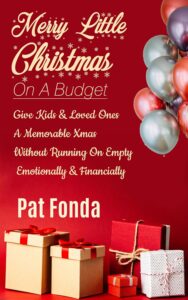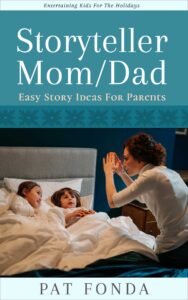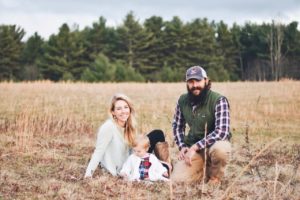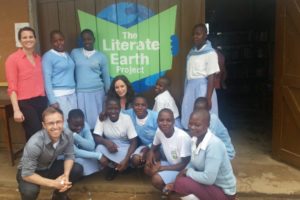









Gallery |
 Christmas On A Budget: What To Do If Your Kid’s Favorite Toy Is Sold Out If you’ve seen the film Jingle All The Way with Arnold Schwarzenegger then you know that this can become an emotionally charged and very vexing problem. What you don’t know is that there are simple solutions that leave everybody cool and collected. By: WordCraft Club WEST PALM BEACH, Fla. – Nov. 10, 2024 – PRLog — Pat Fonda, author of titles like Supercommunicator Spouses, Storyteller Mom/Dad and Gaming Addiction In Children is pleased to announce an important update to her Kindle book, Merry Little Christmas On A Budget: Give Kids And Loved Ones Memorable Holidays Without Running On Empty Emotionally Or Financially. A new chapter has been added that helps parents and gift-givers, who may find themselves in the same quandary as Arnold Schwarzenegger’s character in Jingle All The Way, worm themselves out of the fix – without the toy, it has to be said; but they will enjoy the respect and admiration of their kids for being resourceful… and living up to their promises!  “It’s hard to disappoint a child when they have their heart set on something,” says Pat Fonda. “And this is where parents get ensnared. They forget that a kid’s desires are extremely malleable – the younger, the more malleable!” If you’ve been with kids 3-7 years or so in an ice-cream joint, maybe you can relate: one second she was sure she’ll take the pink scone with frothy white top, and the next few seconds she shouts out, “No; I’ll take the white scone with the frothy pink top!” Don’t take this literally – but we guess you get the point. Lean more here: https://www.patfonda.com/2024/11/merry-little-xmas-on-budget-concise.html The thing is, according to Pat Fonda: “It’s us the adults who make Christmas hard, not the other way around.” This new chapter will show parents and gift-givers that they have options – seven to be exact – how to find wiggle-room without hurting your child’s feelings, or ending the kid’s expectations; or their respect for you; or their trust that you’ll make good on your promises! With the Christmas shopping frenzy just beginning to heat up parents and gift-givers can save money – and still give their kids great gifts and great holidays – without running on empty emotionally or financially. Pat Fonda offers a full range of solutions to help you raise happy, resilient kids and robust families over at her website: https://www.patfonda.com Contact
20 years of the School for Curatorial Studies VeniceInterview with Aurora Fonda of the School for Curatorial Studies Venice  More than a school for curators, it is now a cultural institution frequented by young people from all over the world who want to participate in the art of exhibiting art. He turns twenty years old School for Curatorial Studies Venice founded by Aurora Fonda and Sandro Pignotti in 2004 in Venice with the aim of creating an open laboratory for the visual arts and for all professions related to contemporary art. The Summer School has also been active since 2015, bringing together participants from all over the world. We retraced 20 years of training with Aurora Fonda in this interview. Since 2003 you have been the director of the AplusA gallery in Venice, and only a year later you had the idea of founding a curators’ school from scratch. Lack of available professional figures, or desire to implement a new teaching of contemporary art? Offer them an opportunity to learn and have direct discussion with the hot topics of curation, exhibition design, communication…  Where did you start? What aspects of curating do you pay most attention to, what are your privileged experiences? So it can be said that the first supporters of the school were the artists themselves?  Has the demand from foreign students also grown over time? Another strong point of the school is that a lot of theory is studied… but at a certain point it must be put into practice (continued on webpage) Also see: https://www.linkedin.com/in/aurora-fonda-20965821 https://www.curatorialstudiesveniceonline.com/the-tutors-i-docenti/aurora-fonda
Bob and Jen take a class at Nuesole Glassworksby Bob Herzog and Jen Dalton, WKRCMon, May 6th 2024 CINCINNATI (WKRC) – We like to keep things classy but today we are going to keep things glassy. “One of the first things I talk to people blowing glass is that you will learn a lot of patience. It’s going to be really frustrating, those pieces often hit the ground,” said Ali Fonda. Fonda is just one of the teachers at Nuesole Glassworks. She says it can take years to master the art of glass blowing but no need to worry, if you come in as a beginner, she has you covered. “We do all of the really complicated things until you really come and do it for a while.”
We are going to be making something called a witches ball, or a fairy orb. With that we were ready to get to work, and of course safety first. The gas powered furnaces clock in at more than a thousand degrees Fahrenheit. We put on our protective equipment while Ali gathered a ball of molten glass on a long metal pipe. The next step in this process is to create a perfect sphere.
And while that was happening, Ali and Jen used a wooden tool that was soaked in cool water to create the sphere. This is where the fun really started. With a sharp tool we stabbed holes in our sun catcher. Ali told us to trust the process and that this would make the final design extra special. Not going to lie, this was a little violent. After the stabbing was done, Ali took a blow torch to the orb and with one crack, our creation was freed from the metal pole and ready to go into a kiln where it would harden.
Weathered Ground Brewery breaks ground in Cool RidgeBy Jordan Nelson – Register-Herald Reporter – Aug 6, 2017 Weathered Ground Brewery, located on a high-country 30-acre farm in Cool Ridge, has been a brewery-in-planning for two years. Saturday, it officially opened its doors, offering that distinct craft beer taste to anticipating locals. A joint effort between husband and wife, Sam and Aryn Fonda decided they wanted to move back near Aryn’s childhood home of Daniels, and search for the craft beer business opportunity. “We had been living in Charlotte, N.C., for the past six years,” Aryn Fonda said. “We wanted to move back to where I grew up, and after having our daughter, Willa, we finally did so.” Aryn said she and her husband found a farm in Cool Ridge, and decided not only to open up a brewery, but to live on the property as well. “Growing up here, I have a special connection with this place, and we wanted to bring something to southern West Virginia that we thought many people would love.” Aryn’s husband Sam worked at two breweries in Charlotte in the past, so they were able to transfer their knowledge of the subject into their own business. “We wanted to do our own thing, and this is something we have always been interested in,” she said. “We have wanted to grow organically for a number of years and use those items for our brews.” With Winterplace Ski Resort just up the road from the brewery, both Sam and Aryn hope during the winter season Weathered Ground will be an attraction to tourists. “There are so many outdoor opportunities out within this area,” she said. “We are hoping to expand that even more with our brewery to not only locals, but to the people that come and visit the state.”  (Brad Davis/The Register-Herald) Patrons hang out in the main pub area during the grand opening celebration for the Weathered Ground Brewery Saturday afternoon in Cool Ridge. Carter Lewis, of Charlotte, N.C., drove to Cool Ridge for the brewery opening. He said he did not want to miss out on the event. “I’ve heard that the brew master, one of the owners, is actually from Charlotte as well, so it’s really something to learn that he’s bringing his knowledge here,” Lewis said. “I think this will do something great for this small community,” he said, while sipping one of the many brews available at the facility. “So far, every one of the beers taste really good.” Sam Fonda said the brewery plans to hire only local employees. “We want to provide opportunities for people around here, and we don’t want to stray away from that.” Sam said the idea for the name Weathered Ground came to him and Aryn once they learned of the history of the land. “A lot of animals were raised out here, and a couple of generations of families lived out here as well,” he said. “We believe the property is weathered by people and nature, and it was a name that stuck and had meaning.” Sam explained his nervousness about opening something new in the area, and said sometimes the anxiety sets in. “We have a few panic attacks every now and again,” he said with a laugh. “But we are confident in the beer we make, and we are confident in the type of people we are. All we really want to do is bring something cool to the area, and we really hope it works out.” Within a barn-like building, the dining area of Weathered Ground houses spacious seating, high ceilings and a full-size bar on the back wall, offering several brews, coffee and other non-alcoholic beverages. During the grand opening Saturday, local musical favorite The Kind Thieves, along with Vessel, a band based out of Louisville, Ky., performed to customers outdoors at the back fields of the brewery, where picnic tables are placed all around. Customers were able to enjoy a cold brew indoors, or take their brew outdoors to enjoy music and company.  Aryn said she and her husband found a farm in Cool Ridge, and decided not only to open up a brewery, but to live on the property as well. Christina Wright, of Oak Hill, said she had heard some buzzing about the new brewery and wanted to come check it out for herself. “I’m highly impressed,” Wright said. “There’s breweries in the Fayetteville and Lewisburg area, but they’re all usually closed off to the public, nothing like this.” Wright said she thinks Weathered Grounds will be a big plus to not just the Cool Ridge area, but throughout the state as a whole. “I really enjoy these types of venues, and I will definitely continue to come back.” Aryn said since they have just opened, their food menu will be based on simple, more snack-related items. “We have some really good snacks people will want to try out, though,” she said. “We’re going to have chicken salad sliders, pepperoni rolls, just a lot of finger foods.” She said if the brewery progresses and expands as she and Sam hope, they will expand their menu with more lunch and dinner items. For now, hours for Weathered Ground are Thursday from 4 to 9 p.m., Friday from 4 to 10 p.m., Saturday from noon to 10 p.m., and Sunday from 1 to 6 p.m. Aryn said those hours might expand as more staff becomes available. “We’re just really excited to finally be open, and we hope it’s a big hit.” Links: Website, Facebook, Instagram, Video
Master’s student building libraries, bringing resources to UgandaAn MBA candidate created an organization to increase literacy in Uganda. by Kimberly Burton, 20 September 2016  St. Mugaga Secondary School library is one of the nine libraries the Literate Earth Project has opened throughout rural districts of Uganda since 2013, with two more openings slated for this year. During a service trip Jeff Fonda took to Uganda, he worked in a school with no textbooks. Instead, every student was given a hand-written version of a textbook for their classes. “It’s a crazy process, they actually hand copied each book over and over again,” Fonda said. “It was great they had the text, but they had no formalized pictures or graphs.” Fonda, a first-year master’s of business administration student, was inspired by his experiences in Uganda to found the nonprofit called The Literate Earth Project, an organization that helps Ugandan children get access to books and increase literacy. Other than the hand-copied textbooks, students had no books to read for pleasure. Fonda soon discovered the school’s headmaster had approximately 15 books in his office and decided to show them to the students. “With these books and atlas, they were seeing pictures of new people, trees, buildings, things they had never seen before,” Fonda said. Information about sports in particular were of interest to them, Fonda added. “They were asking things like, ‘What is this sport?’ They had never seen tennis before. ‘What is this racket for?’” he said. This is when his revelation occurred, he said. “You could see the wheels were going in their heads,” Fonda said. “That experience of seeing the real need for knowledge and how it spurred these other thoughts and conversations was amazing.” The Literate Earth Project was officially formed in 2011. In 2013, Fonda and his organization opened their first library in Uganda. In that same year, they also received a LEAP grant from BetterWorldBooks. LEAP grants are given to organizations with “game-changing” ideas to “help advance a compelling literacy project,” according to its website. “We watched [the first library] for a year and half to see it’s successes and failures,” he said. After Fonda and other individuals from the organization saw the library was working, they began to open more libraries throughout the country in 2014. In the past two and a half years, The Literate Earth Project has opened nine libraries in areas like the Rakai, Masaka and Wakiso districts of Uganda. The organization will also open two more this year. “As long as we are able to keep up funding, we’re actually on pace to open four to six libraries per year and we would like to continue at that pace,” said Alex Moore, project’s chief operating officer. The need for books in Uganda is evident through the requests for the organization’s libraries. The Literate Earth Project has a list of about 50 schools that have been okayed to receive libraries, but hundreds have made requests. To ensure success, the organization has a vetting process where staff visit the school to assess its needs. They make sure the teachers and community are going to get involved, and that the books will actually be used by the students. In the past, to raise awareness for the program, Fonda has met with Uganda’s Vice President, H. E. Edward Ssekandi. Ssekandi has implemented policy to aid in increasing literacy in Uganda. Fonda said he hopes to expand the program to the many schools on their waitlist, but the organization doesn’t have money for the books themselves. By applying for grants, starting college clubs and hosting events like the Let’s Get Literate 5K Run, they have started to raise more money for their efforts. “We’re constantly looking for new partnerships so that we can kind of work together with other organizations that might provide solar energy or computers to schools,” Moore said. Fonda, who is interested in eventually starting a club on Main Campus connected to his nonprofit, hopes to continue focusing on Uganda due to the serious demand for libraries. “I’d like to say we can change the whole world, but right now our goal is to change Uganda,” Fonda said. “The demand is insatiable [there].” Kimberly Burton can be reached at kimberly.burton@temple.edu. Also see: Literate Earth Project, Books for Africa |